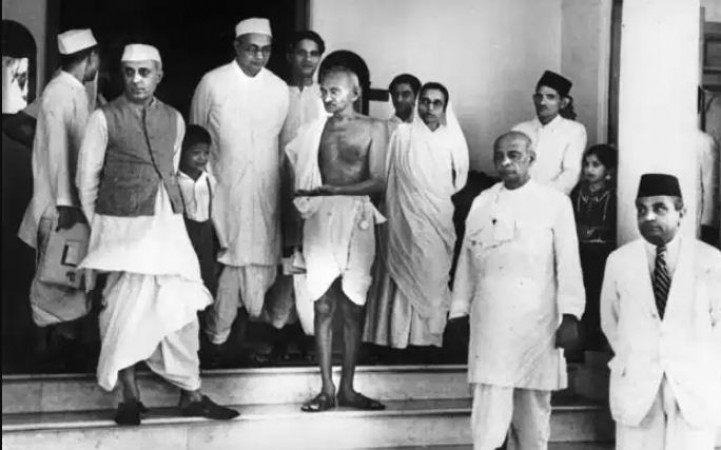
This Day in History: On June 23, 1946, one of India's most revered leaders, Mahatma Gandhi, offered crucial advice to the Indian National Congress regarding their participation in the political landscape during a significant turning point in the country's history. Gandhi's guidance focused on the formation of an interim government and stressed the importance of the Constituent Assembly. His wise counsel would shape the future course of the Indian independence movement and the subsequent creation of a new nation.
Gandhi's Standpoint: Mahatma Gandhi, a staunch advocate of non-violence and a key figure in India's struggle for independence from British rule, held a prominent position within the Indian National Congress. As negotiations unfolded with British authorities regarding India's political future, a proposal was put forth to form an interim government to oversee the country's transition to independence. However, Gandhi took a different stance, advising against Congress's participation in the interim government and instead emphasizing the Constituent Assembly as the primary vehicle for shaping India's destiny.
Importance of the Constituent Assembly: The Constituent Assembly was envisioned as a body responsible for drafting India's constitution and determining the future course of governance. Gandhi believed that the Assembly should include representatives from various communities and interest groups, fostering inclusivity and ensuring the diverse voices of the Indian population were heard. By participating solely in the Constituent Assembly, Gandhi aimed to safeguard the Congress's ability to shape a truly democratic and representative framework for the independent nation.
Reasoning behind Gandhi's Advice: Gandhi's reservations regarding the interim government stemmed from concerns about its composition and the potential exclusion of certain communities. He worried that such a government, without adequate representation, could be unrepresentative and might fail to address the deep-rooted social and political issues facing India. Gandhi believed that participation in an interim government that did not accurately reflect the nation's diverse population could hinder the Congress's ability to enact meaningful change.
Congress's Response: Following Gandhi's advice, the Indian National Congress decided not to join the interim government proposed by the British authorities. Instead, they focused their efforts on the Constituent Assembly, where they could work towards creating a just and inclusive constitution for the future of India. This decision also reflected the Congress's commitment to Gandhi's principles of non-violence and democratic participation.
Gandhi's counsel proved to be pivotal in shaping the direction of the Indian independence movement. By focusing on the Constituent Assembly, the Congress was able to work towards a democratic and inclusive constitution that would form the bedrock of independent India. The Assembly, with its diverse representation, played a vital role in uniting the nation and addressing the concerns and aspirations of various communities. Gandhi's emphasis on the Constituent Assembly not only safeguarded the democratic spirit of the independence struggle but also set the stage for a pluralistic and inclusive India.
On June 23, 1946, Mahatma Gandhi's advice to the Indian National Congress, urging them to prioritize participation in the Constituent Assembly over joining an interim government, showcased his visionary leadership and commitment to democracy. His guidance ensured that the Congress could contribute to the drafting of a constitution that would embrace the principles of justice, equality, and inclusivity. Gandhi's wisdom continues to inspire generations, underscoring the significance of inclusive and representative governance in the building of a strong and vibrant nation like India.